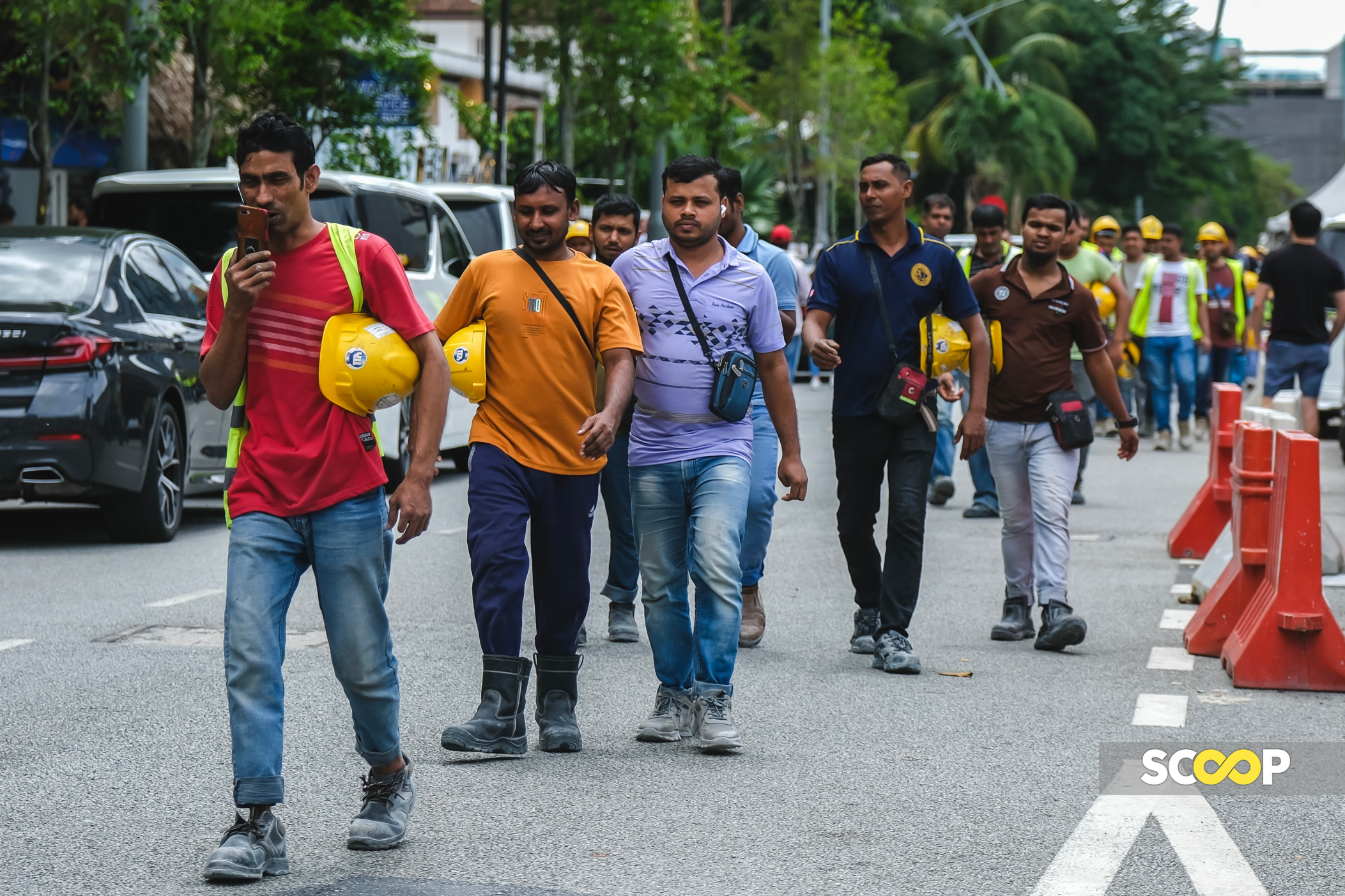GEORGE TOWN – Migrant labour rights groups have insisted that centralised labour quarters (CLQs) should be allowed near residential areas but stresses the need for training to help foreign workers adapt to Malaysian culture.
Residents in Penang have been vocal in their opposition to CLQ projects near their neighbourhoods. On 17 November, about 200 residents in Juru held a peaceful protest against a proposed CLQ, expressing concerns over public safety, traffic congestion, reduced quality of life, and increased pollution.
This marked the second such protest in the state after a December 2023 demonstration in Teluk Kumbar, where nearly 1,000 residents opposed two proposed dormitory projects near Bayan Lepas.
Integrating workers into local communities
Tenaganita Executive Director Glorene Das proposed building CLQs within residential areas, highlighting the benefits of a humane and community-based living environment.
“Having CLQs near neighbourhoods helps reduce travel time for workers to commute to work, particularly if the residential area is close to industrial zones.
“Plus, properly managed CLQs in residential areas can set standards for hygiene, safety, and well-being that benefit everyone,” she told Scoop when contacted.
Das noted that proximity to amenities such as shops, parks, and healthcare services contributes to a better quality of life for workers and fosters cultural exchange between them and local residents.
However, she acknowledged the challenges, including potential community tensions.
“Without proper engagement and education, misconceptions can lead to resistance and social tensions. Increased population density can also strain local infrastructure if not addressed adequately,” she said.
Das also highlighted the financial burden on companies to maintain CLQs that harmonise with residential areas. Nevertheless, she emphasised the need for careful planning to balance the needs of stakeholders.
She further urged companies hiring foreign workers to conduct post-arrival orientation sessions to familiarise workers with local customs and values.
“The solution lies in a balanced approach where workers are provided with safe, dignified, and inclusive living conditions while residents’ genuine concerns are addressed,” she added.
Despite Tenaganita’s stance, many residents believe that CLQs should be confined to industrial areas. Protesters in Juru expressed concerns about the potential for social ills and crimes, particularly due to the proximity of neighbourhoods to schools.
Similar arguments were raised by residents in Teluk Kumbar, who also voiced fears of increased industrial pollution.
Health risks and social segregation
Das countered that building CLQs in industrial areas could expose workers to occupational hazards such as industrial emissions and heavy machinery, negatively impacting their health. Limited access to essential services like healthcare and markets could further reduce their quality of life.
She warned that isolating workers in industrial zones risks perpetuating social segregation, restricting their interactions with the broader community.
“Workers housed in industrial areas may face difficulties in seeking legal redress when necessary or accessing assistance, further exacerbating their vulnerabilities and isolation,” she said.
Adrian Pereira of the North South Initiative echoed these concerns, emphasising the importance of fostering inter-community engagement.
“That is what I’m a bit worried about. So, then what happens? How do we (Malaysians) learn to understand them (foreign workers)?
“Why are we treating foreigners as if they are from outer space? We want them to benefit from the opportunity given to co-exist with society,” Pereira told Scoop.
The case for CLQs
The Malaysian government mandated the construction of CLQs to provide foreign workers with adequate living conditions, especially after cramped accommodations were identified as Covid-19 infection clusters during the pandemic.
The facilities are also aligned with the Employees’ Minimum Standards of Housing, Accommodations and Amenities Regulations and International Labour Organisation (ILO) guidelines.
Pereira acknowledged the role of CLQs in improving living standards and reducing forced labour accusations against companies. However, he criticised the concept for creating what he described as “an impression of a concentration camp.”
“It also creates an impression that these people (foreign workers) don’t deserve to exist among local residents,” he said, advocating instead for workers to live in residential areas with proper training on Malaysian lifestyles.
He also criticised Malaysians for their apparent reluctance to coexist with foreign workers despite the country’s reliance on them for economic development.
Penang Chief Minister Chow Kon Yeow previously defended the idea of building CLQs near residential areas, saying that foreign workers have human rights and should not be confined to industrial zones. – November 23, 2024


